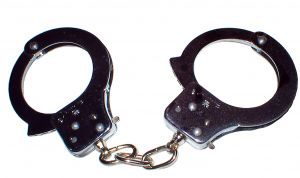It’s hard for some folks to believe that non-violent, small-time, petty theft can land people in a Florida prison for years. But it happens all the time, both because of Florida’s low felony theft threshold and minimum mandatory penalties for those convicted of prior offenses.
Two bills that had been advancing through the Florida legislature earlier this year sought to address it. Both, however, have since been defeated, meaning at least this year, the Sunshine State won’t be joining the ranks of a growing number of states that are increasing the dollar amount threshold for felony theft charges (the dollar amount at which a theft crime becomes a felony instead of a misdemeanor).
Lowest Felony Theft Threshold in the Country
In fact, Florida has the second-lowest felony theft threshold in the country – just $300, per F.S. 812.014. Someone may end up in prison for stealing even less than that if they have prior convictions or are on probation/parole. Other states, on average, have a felony theft threshold of somewhere between $1,000 and $2,500. Plus, many don’t have the punitive provision that Florida has, wherein the third petty theft is an automatic felony charge. Continue reading
 Fort Lauderdale Criminal Attorney Blog
Fort Lauderdale Criminal Attorney Blog












